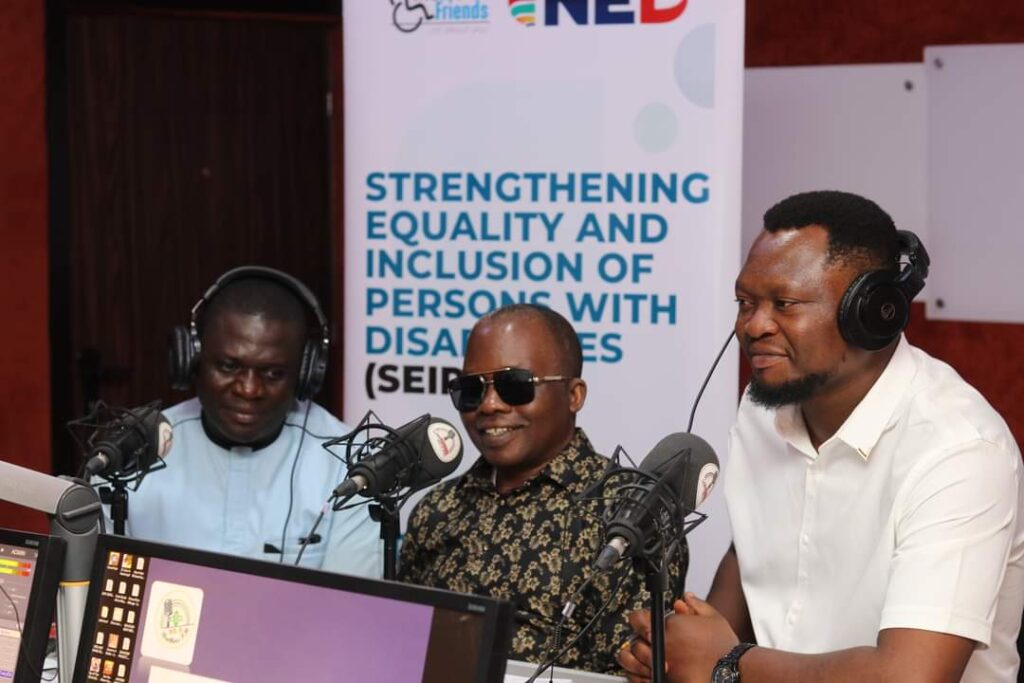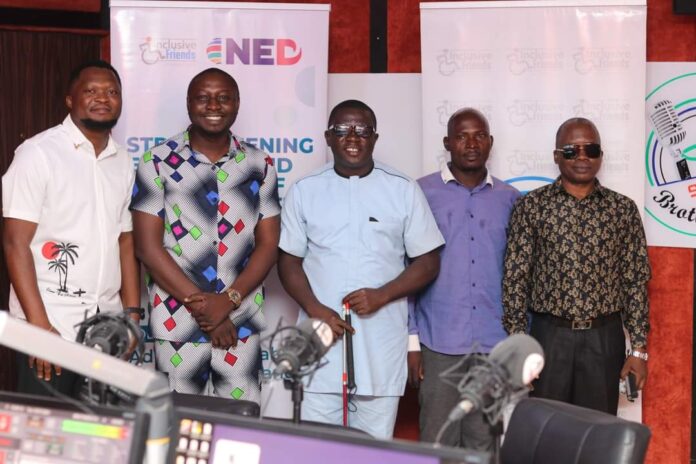The disability law is not just a piece of legislation—it’s a transformative instrument for the community of persons with disabilities. This law ensures equal rights and opportunities, fostering an inclusive society where disability rights are recognized as fundamental human rights.
In an insightful discussion on Brothers FM, 90.5 Makurdi, key stakeholders shed light on the importance of domesticating the disability law and its profound impact on persons with disabilities in Benue State. The discussion featured Hon. Bemshima Anshe, State Chairman of the Joint Association of Persons with Disabilities and Special Adviser to the Governor on Disability Matters; Bar. Sunday Sabeh, Deputy Director of the Ministry of Justice and Legal Adviser to JONAPWD Benue State; Nansel Sense Samuel, M&E/Communications at Inclusive Friends Association (IFA); and Stephen Oloche Idoko, Program Coordinator.
The Significance of Domestication
The domestication of the disability law is a critical step towards ensuring that the rights of persons with disabilities are protected and upheld within the state. Hon. Bemshima Anshe emphasized that the law provides a framework for the inclusion and empowerment of persons with disabilities, ensuring that they have access to the same opportunities as everyone else.
“This law is a beacon of hope for our community,” said Hon. Anshe. “It signifies a commitment to equality and justice, guaranteeing that persons with disabilities are not left behind in the development agenda of Benue State.”

Positive Impact on the Community
The implementation of the disability law has already begun to make a positive impact on the lives of persons with disabilities. Bar. Sunday Sabeh highlighted that the law mandates the provision of accessible infrastructure, inclusive education, and employment opportunities for persons with disabilities. This has led to increased participation and visibility of persons with disabilities in various sectors of society.
“The law is a powerful tool for change,” Bar. Sabeh remarked. “It ensures that persons with disabilities can live with dignity and participate fully in all aspects of life. This is a significant step towards an inclusive society where everyone is valued and respected.”
Opportunities and Challenges
The discussion also delved into the opportunities that the disability law brings. Nansel Sense Samuel from the Inclusive Friends Association (IFA) pointed out that the law opens up avenues for advocacy, capacity building, and economic empowerment for persons with disabilities. By ensuring that public spaces and services are accessible, the law enhances the quality of life for persons with disabilities and promotes their active participation in the community.
However, the journey towards full implementation of the law is not without challenges. Stephen Oloche Idoko, Program Coordinator, noted that there are still significant hurdles to overcome, particularly in terms of awareness and enforcement. Advocacy efforts need to be strengthened to ensure that the provisions of the law are effectively implemented and that the rights of persons with disabilities are upheld.
A Call to Action
The discussion concluded with a call to action, urging all stakeholders to work together to ensure the full domestication and implementation of the disability law. The panelists emphasized that disability rights are non-negotiable and must be recognized as human rights.
“It is crucial that we continue to advocate for the rights of persons with disabilities,” said Hon. Anshe. “We must hold our leaders accountable and ensure that the promises made in the disability law are translated into tangible actions that benefit our community.”
In Benue State, the domestication of the disability law is more than just a legislative milestone—it’s a testament to the commitment to creating an inclusive and equitable society. As the community of persons with disabilities continues to advocate for their rights, the law stands as a powerful ally in the fight for justice and equality.


